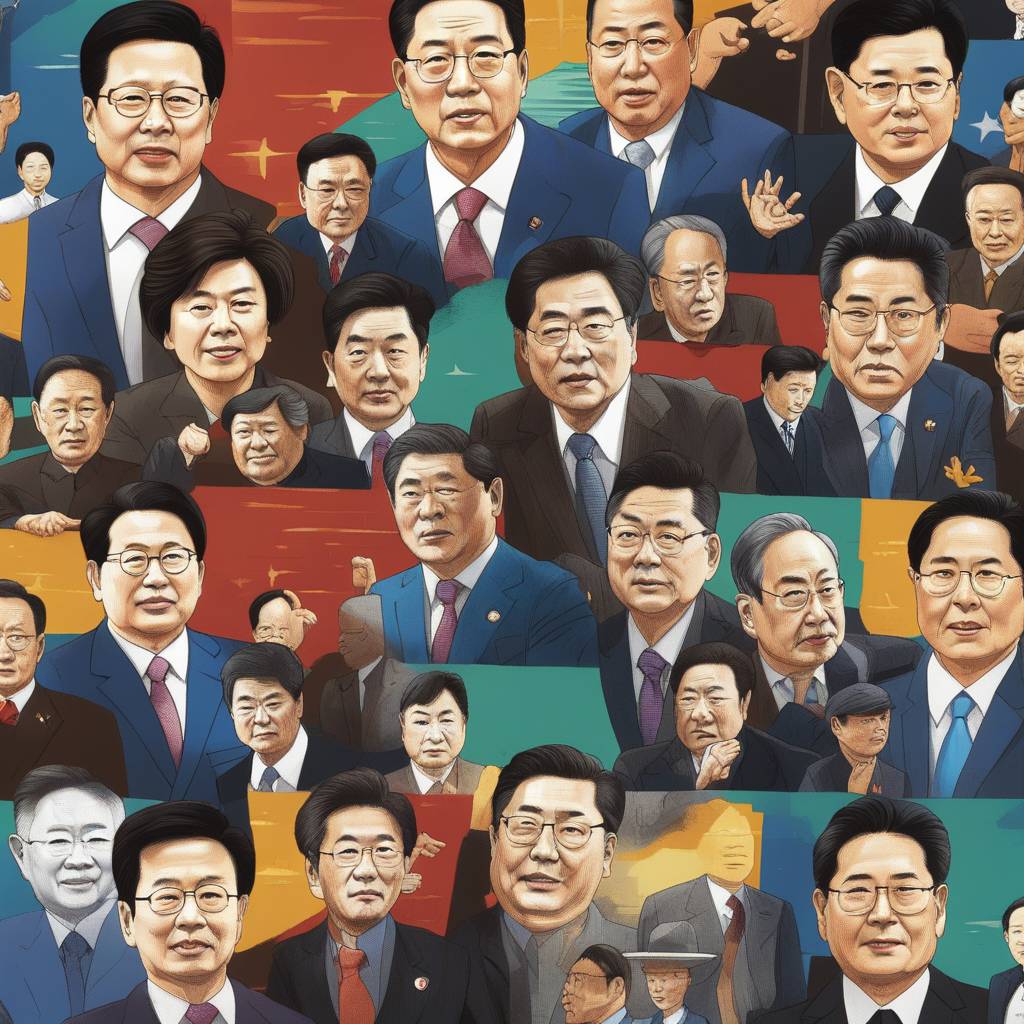Elections in South Korea are typically dominated by two major parties, but voters growing disillusioned with traditional politics are turning to alternative parties like the Rebuilding Korea Party led by former justice minister Cho Kuk. Cho Kuk, who was indicted on charges including bribery and document fraud in 2019, aims to weaken the ruling People Power Party led by Mr Han Dong Hoon and potentially form an alliance with the Democratic Party, which could shift the balance of power in parliament.
With concerns that the Rebuilding Korea Party could significantly impact the upcoming election, Cho Kuk has made strong statements about his intentions to challenge the current government. He plans to make Mr Yoon, the incumbent president, politically incapacitated and potentially even face impeachment. While these ambitions may seem radical, they highlight a growing sentiment among voters, particularly swing voters in their 20s and 30s, who are looking for change and new leadership in South Korean politics.
One young voter emphasized the importance of equalizing development between the capital region and the provinces. They are looking for a candidate who can bring in more investment and build cultural facilities to address the current imbalance. Another voter expressed skepticism towards traditional party agendas, preferring a more balanced distribution of power to prevent any one party from becoming too dominant. These perspectives reflect a desire for diversity and inclusivity in the political landscape.
The emergence of alternative parties like the Rebuilding Korea Party suggests a shift towards new political ideologies and leadership styles in South Korea. While the ruling People Power Party and the opposition Democratic Party have historically dominated elections, voters are increasingly seeking out candidates that offer fresh perspectives and solutions to longstanding issues. This trend is reflected in the rise of Cho Kuk’s party, which has gained traction in a short amount of time and has the potential to challenge the status quo in South Korean politics.
As the election approaches, the influence of swing voters, particularly young adults, will be crucial in determining the outcome. These voters have the power to shape the future direction of South Korea by supporting candidates who prioritize issues like regional development and balanced power distribution. Their choices will not only impact the upcoming election but also signal a broader shift towards alternative parties and new political visions in the country.
Overall, the rise of alternative parties like the Rebuilding Korea Party signals a growing appetite for change and innovation in South Korean politics. Voters, especially swing voters in their 20s and 30s, are seeking out candidates who offer fresh perspectives and solutions to address the country’s most pressing challenges. With the upcoming election poised to potentially reshape the political landscape, the influence of these voters will be key in determining the direction of South Korea’s future leadership and priorities.













